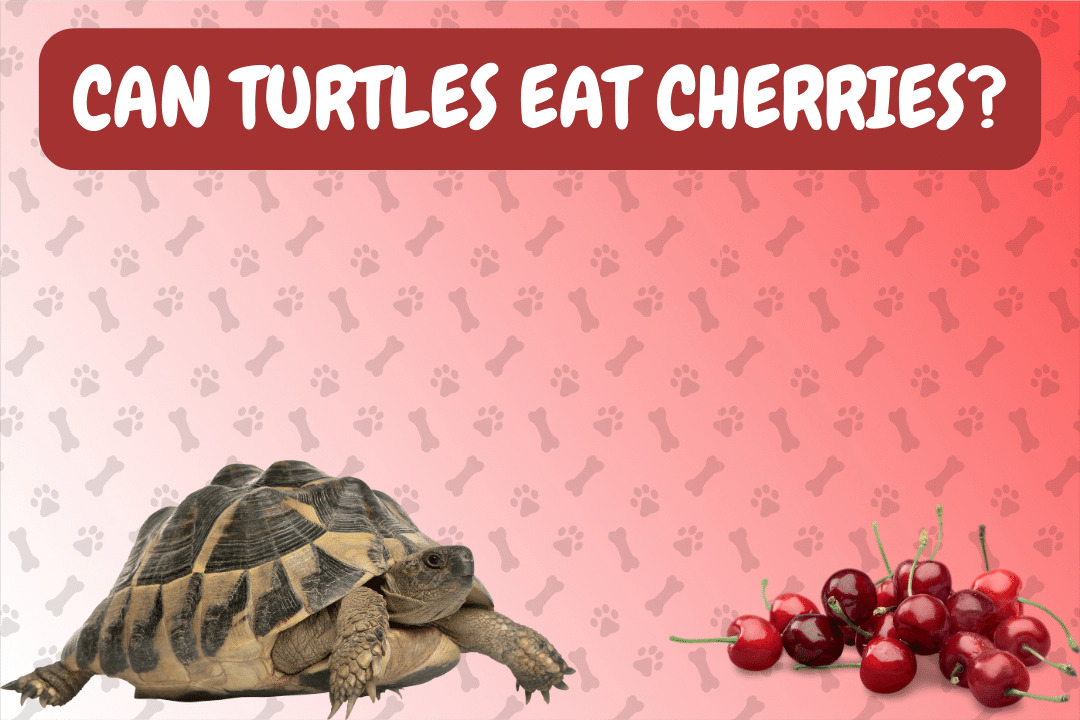No, turtles can’t eat cherries, because cherries contain high levels of sugar, acid, and cyanide, which can be harmful to turtles’ health.
Table of Contents
Introduction
Turtles are fascinating and popular pets that have been around for millions of years. They belong to the order Testudines, which includes over 300 species of aquatic and terrestrial reptiles. Turtles have a hard shell that protects them from predators and a beak-like mouth that helps them bite and tear their food. Turtles are generally omnivorous, meaning they eat both plant and animal matter, but their diet may vary depending on their species, age, and environment.
One of the most common questions that turtle owners have is what kind of fruits they can feed their shelled companions. Fruits are often appealing to humans because they are sweet, juicy, and nutritious, but are they good for turtles as well? In this article, we will answer can turtles eat cherries, one of the most popular fruits in the world. We will also discuss the nutritional value, potential risks, serving suggestions, and special considerations of feeding cherries to turtles.
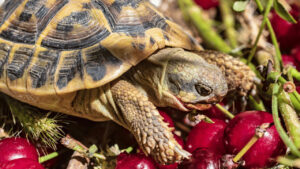
Nutritional Value of cherries
Cherries are the fruits of the cherry tree, which belongs to the genus Prunus. There are many varieties of cherries, but the most common ones are sweet cherries (such as Bing and Rainier) and sour cherries (such as Montmorency and Morello). Cherries are rich in antioxidants, vitamins, minerals, and fiber, which can provide some health benefits for humans. However, cherries also contain high amounts of sugar, acid, and cyanide, which can be detrimental to turtles’ health.
According to the USDA, 100 grams of raw sweet cherries contain about 63 calories, 16 grams of carbohydrates, 13 grams of sugar, 2 grams of fiber, 1 gram of protein, and 0.2 grams of fat. They also provide 7% of the daily value (DV) of vitamin C, 3% of the DV of vitamin A, 2% of the DV of vitamin K, 2% of the DV of potassium, and 1% of the DV of calcium, iron, and magnesium. Sour cherries have similar nutritional values, but with slightly less sugar and more vitamin A and C.
Turtles, on the other hand, have different nutritional requirements than humans. They need a balanced diet that provides them with enough protein, calcium, phosphorus, vitamin A, vitamin D3, and other essential nutrients. The exact proportions of these nutrients may vary depending on the species and age of the turtle, but generally, young turtles need more protein and calcium for growth and development, while adult turtles need more fiber and vitamin A for digestion and vision. Fruits, such as cherries, can provide some of these nutrients, but they are not sufficient to meet the turtles’ dietary needs.
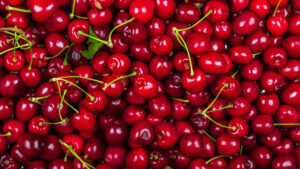
Potential Risks of Feeding Turtles with Cherries
While cherries may seem like a tasty treat for turtles, they can also pose some serious risks. Here are some of the potential dangers of feeding cherries to turtles:
- Sugar: Cherries are high in sugar, which can cause obesity, diabetes, and dental problems in turtles. Sugar can also disrupt the turtles’ digestive system and cause diarrhea, dehydration, and bacterial infections. Turtles are not adapted to digest large amounts of sugar, and they may develop a preference for sweet foods over their natural diet.
- Acid: Cherries are acidic, which can irritate the turtles’ mouth, throat, and stomach. Acid can also damage the turtles’ shell and bones, as it can leach calcium and other minerals from their body. Turtles need a neutral or slightly alkaline pH level to maintain their health and metabolism.
- Cyanide: Cherries contain cyanogenic glycosides, which are compounds that can release cyanide when broken down by enzymes. Cyanide is a toxic substance that can interfere with the turtles’ cellular respiration and cause suffocation, seizures, coma, and death. The pits, stems, and leaves of cherries have higher concentrations of cyanogenic glycosides than the flesh, so they should never be fed to turtles.
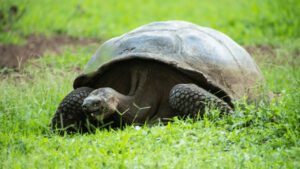
How to Serve Cherries Safely to Turtles
Given the potential risks of feeding cherries to turtles, it is best to avoid them altogether. However, if you really want to give your turtle a small taste of cherries, you should follow these guidelines to minimize the harm:
- Choose sweet cherries over sour cherries, as they have lower levels of cyanide and acid.
- Wash the cherries thoroughly to remove any pesticides, dirt, or bacteria.
- Remove the pits, stems, and leaves of the cherries, as they contain the most cyanide and can also cause choking or intestinal blockage.
- Cut the cherries into small, bite-sized pieces that are easy for your turtle to swallow.
- Feed only one or two cherries per month as an occasional treat, not as a regular part of your turtle’s diet.
- Monitor your turtle for any signs of distress, such as vomiting, diarrhea, lethargy, or difficulty breathing, after feeding cherries. If you notice any of these symptoms, contact your veterinarian immediately.
Serving Suggestions for Turtles
Cherries are not a good food choice for turtles, as they can cause more harm than good. However, there are many other fruits that are safer and healthier for turtles to eat. Some of the best fruit options include:
- Apples
- Melons
- Berries
- Banana
- Grapes
- Oranges
These fruits are lower in sugar and acid than cherries, and they also provide more vitamin C, vitamin A, and fiber for turtles. However, even these fruits should be fed in moderation, as they are still high in carbohydrates and low in protein and calcium. Fruits should only make up about 10% to 20% of your turtle’s diet, depending on the species and age. The rest of the diet should consist of vegetables, animal products, and commercial turtle pellets.
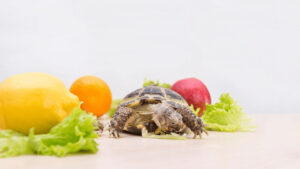
Special Considerations
Before feeding any fruits to your turtle, you should consider some special factors that may affect your turtle’s health and well-being. These include:
- Species: Different species of turtles have different dietary preferences and requirements. For example, aquatic turtles tend to be more carnivorous than terrestrial turtles, and they may need more animal protein and less plant matter. Some species, such as box turtles, are more omnivorous and can eat a wider variety of foods. You should research the specific needs of your turtle’s species and adjust the diet accordingly.
- Age: Younger turtles need more protein and calcium for growth and development, while older turtles need more fiber and vitamin A for digestion and vision. You should feed your turtle according to its life stage and change the diet as it matures. Generally, juvenile turtles need more frequent and larger meals than adult turtles, and they may also need more supplements to prevent deficiencies.
- Allergies: Some turtles may be allergic or intolerant to certain foods, such as fruits. If your turtle shows any signs of an allergic reaction, such as itching, swelling, hives, or difficulty breathing, you should stop feeding the food and seek veterinary attention. You should also avoid feeding any foods that your turtle has shown a negative reaction to in the past.
- Dietary restrictions: Some turtles may have medical conditions or special needs that require a restricted or modified diet. For example, turtles with kidney problems may need a low-protein diet, while turtles with shell rot may need a high-calcium diet. You should consult your veterinarian before feeding any fruits or other foods to your turtle if it has any health issues or concerns.
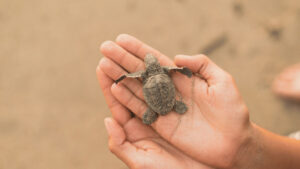
Expert Opinion
Many veterinarians and experts agree that cherries are not a suitable food for turtles, as they can cause more harm than good. Here are some of the opinions and recommendations from the experts:
- Dr. Jennifer Coates, a veterinarian and writer for PetMD, says that cherries are not a good food for turtles, as they are high in sugar and low in calcium. She advises that turtles should be fed a balanced diet that includes commercial turtle pellets, leafy greens, and other vegetables, as well as occasional treats such as worms or insects. here
- Dr. Jesse Fallon, a veterinarian and director of veterinary services at the Wildlife Center of Virginia, says that cherries are not a natural part of a turtle’s diet, and they can cause digestive problems and nutritional imbalances. He recommends that turtles should be fed a diet that mimics their natural habitat, which may include aquatic plants, insects, fish, and snails. He also warns that cherries and other fruits can attract pests and predators, which can endanger the turtles. here
- Dr. Peter Paul van Dijk, a turtle expert and director of the Tortoise and Freshwater Turtle Specialist Group, says that cherries are not a good food for turtles, as they are too sweet and acidic. He suggests that turtles should be fed a diet that consists of 80% to 90% vegetables and flowers, and 10% to 20% fruits. He also advises that turtles should be given calcium and vitamin supplements to prevent shell deformities and other health problems. here
Conclusion
Turtles are omnivorous animals that can eat a variety of foods, but cherries are not one of them. Cherries are high in sugar, acid, and cyanide, which can be harmful to turtles’ health. They can cause obesity, diabetes, dental problems, digestive issues, shell damage, bone loss, and cyanide poisoning. Therefore, it is best to avoid feeding cherries to turtles altogether, and opt for other fruits that are safer and healthier for them.
FAQ
Here are some of the frequently asked questions and answers related to turtles and cherries:
Can turtles eat cherry tomatoes?
No, turtles can’t eat cherry tomatoes, as they are also high in sugar and acid, and they belong to the nightshade family, which can be toxic to turtles. Cherry tomatoes can cause the same problems as cherries, such as obesity, diabetes, dental issues, digestive issues, shell damage, bone loss, and cyanide poisoning.
Can turtles eat dried cherries?
No, turtles can’t eat dried cherries, as they are even worse than fresh cherries, as they have higher concentrations of sugar, acid, and cyanide, and they lack water and fiber, which are essential for turtles’ hydration and digestion. Dried cherries can cause severe dehydration, diarrhea, and cyanide poisoning in turtles.
Can turtles eat maraschino cherries?
No, turtles can’t eat maraschino cherries, as they are processed cherries that have been soaked in sugar syrup, dyed, and flavored with chemicals. Maraschino cherries are extremely high in sugar and artificial additives, which can be harmful to turtles’ health. Maraschino cherries can cause diabetes, dental problems, digestive issues, and allergic reactions in turtles.
Can turtles eat cherry pits?
No, turtles can’t eat cherry pits, as they contain the most cyanide and can also cause choking or intestinal blockage. Cherry pits can release cyanide when broken down by enzymes, which can interfere with the turtles’ cellular respiration and cause suffocation, seizures, coma, and death. Cherry pits can also get stuck in the turtles’ mouth, throat, or intestines, which can cause pain, inflammation, infection, and perforation.
Can turtles eat cherry leaves?
No, turtles can’t eat cherry leaves, as they also contain cyanide and can be toxic to turtles. Cherry leaves can cause the same symptoms as cherry pits, such as cyanide poisoning, suffocation, seizures, coma, and death. Cherry leaves can also irritate the turtles’ mouth, throat, and stomach, and damage their shell and bones.
Can turtles eat cherry stems?
No, turtles can’t eat cherry stems, as they also contain cyanide and can be harmful to turtles. Cherry stems can cause the same problems as cherry leaves, such as cyanide poisoning, suffocation, seizures, coma, and death. Cherry stems can also cause choking or intestinal blockage, as they are hard and woody, and can get stuck in the turtles’ mouth, throat, or intestines.
Can turtles eat cherry yogurt?
No, turtles can’t eat cherry yogurt, as it is a dairy product that contains lactose, which turtles can’t digest. Cherry yogurt can also contain sugar, acid, and artificial flavors, which can be bad for turtles’ health. Cherry yogurt can cause lactose intolerance, obesity, diabetes, dental problems, digestive issues, and allergic reactions in turtles.
Can turtles eat cherry pie?
No, turtles can’t eat cherry pie, as it is a baked good that contains flour, butter, sugar, and other ingredients that are not suitable for turtles. Cherry pie can also contain cherries, which are high in sugar, acid, and cyanide, and can be harmful to turtles’ health. Cherry pie can cause obesity, diabetes, dental problems, digestive issues, shell damage, bone loss, and cyanide poisoning in turtles.
Can turtles eat cherry jam?
No, turtles can’t eat cherry jam, as it is a preserved food that contains cherries, sugar, and pectin, which are not good for turtles. Cherry jam can also contain acid and preservatives, which can be detrimental to turtles’ health. Cherry jam can cause obesity, diabetes, dental problems, digestive issues, shell damage, bone loss, and cyanide poisoning in turtles.
Can turtles eat cherry juice?
No, turtles can’t eat cherry juice, as it is a liquid that contains cherry extract, water, and sugar, which are not beneficial for turtles. Cherry juice can also contain acid and additives, which can be harmful to turtles’ health. Cherry juice can cause obesity, diabetes, dental problems, digestive issues, shell damage, bone loss, and cyanide poisoning in turtles.
For more Turtles food informations, keep reading our blog.
Hello! I’m Max Walley, a pet enthusiast who knows a lot about what our animal buddies can munch on and what’s a no-no. With ‘canpeteat.it,’ I’m here to help pet owners make smart food choices. Come with me as we dive into the world of pet nutrition, discovering what keeps our furry pals joyful and in tip-top shape. Let’s explore this adventure together!


